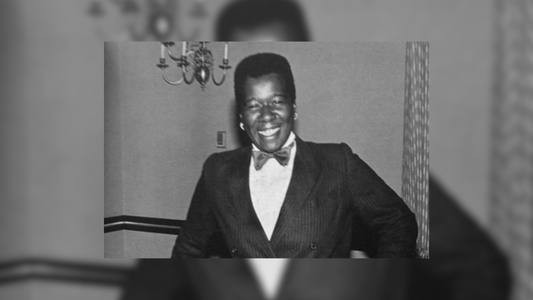Planned Parenthood has been a cornerstone of reproductive health and rights in the United States for over a century. Established with the mission of providing comprehensive reproductive health services and advocating for women's rights, Planned Parenthood has played a pivotal role in shaping the landscape of healthcare, education, and public policy. This blog post will explore the history of Planned Parenthood, from its founding to its current impact, highlighting key milestones and challenges along the way.
1. The Founding of Planned Parenthood
a. Early Beginnings:
The origins of Planned Parenthood can be traced back to the early 20th century, during a time when discussions about birth control and family planning were highly controversial. The movement for birth control began with figures like Margaret Sanger, a nurse and social activist who advocated for women's reproductive rights and access to contraceptives.
b. Margaret Sanger and the Birth Control Movement:
Margaret Sanger’s advocacy for birth control was rooted in her belief that women should have the right to control their own bodies and reproductive choices. In 1916, Sanger opened the first birth control clinic in Brooklyn, New York, which was soon raided and closed by authorities. Despite the setback, Sanger continued her work, founding the American Birth Control League (ABCL) in 1921, which later became Planned Parenthood.
c. Establishment of Planned Parenthood:
In 1942, the American Birth Control League merged with the Birth Control Clinical Research Bureau to form the Planned Parenthood Federation of America (PPFA). The organization aimed to provide accessible reproductive health services, including contraception, and to educate the public about family planning.
2. Growth and Expansion
a. Early Achievements:
During the 1950s and 1960s, Planned Parenthood expanded its services and outreach efforts. The organization played a significant role in advocating for the availability of birth control, contributing to the eventual approval of the first oral contraceptive pill, Enovid, by the Food and Drug Administration (FDA) in 1960.
b. Legal Milestones:
Planned Parenthood's advocacy work was instrumental in shaping key legal decisions related to reproductive rights. In 1965, the Supreme Court’s Griswold v. Connecticut decision struck down laws banning contraceptives for married couples, affirming the right to privacy in marital relations. This landmark case set the stage for further advancements in reproductive rights.
c. Roe v. Wade:
One of the most significant achievements in the history of Planned Parenthood was its involvement in the Roe v. Wade case. In 1973, the Supreme Court ruled in Roe v. Wade that women have a constitutional right to choose to have an abortion, a landmark decision that Planned Parenthood supported and defended.
3. Challenges and Controversies
a. Political and Social Opposition:
Throughout its history, Planned Parenthood has faced significant opposition from various political and social groups. Controversies surrounding abortion, birth control, and reproductive rights have led to numerous challenges, including legal battles, funding disputes, and public protests.
b. Funding and Defunding Efforts:
Planned Parenthood’s funding has been a recurring issue, particularly regarding federal and state support. In recent decades, efforts to defund Planned Parenthood have intensified, driven by debates over abortion and the use of federal funds. Despite these challenges, Planned Parenthood has continued to provide essential services and advocate for reproductive rights.
4. Services and Impact
a. Comprehensive Health Services:
Planned Parenthood provides a wide range of services beyond birth control and abortion, including cancer screenings, sexually transmitted infection (STI) testing and treatment, prenatal care, and sexual education. The organization’s health centers offer vital care to millions of individuals, regardless of their ability to pay.
b. Education and Advocacy:
In addition to providing medical services, Planned Parenthood is deeply involved in education and advocacy. The organization offers educational programs on reproductive health, sexual health, and healthy relationships. It also engages in advocacy efforts to protect and expand reproductive rights, working at local, state, and national levels.
c. Global Reach:
Planned Parenthood’s impact extends beyond the United States through its international programs. The organization works with global partners to improve reproductive health services, advocate for women's rights, and address critical issues such as maternal health and family planning in developing countries.
5. The Future of Planned Parenthood
a. Adapting to New Challenges:
As reproductive health and rights continue to evolve, Planned Parenthood remains at the forefront of addressing new challenges and opportunities. The organization is committed to adapting its services and advocacy efforts to meet the changing needs of individuals and communities.
b. Building Alliances and Partnerships:
Planned Parenthood continues to build alliances and partnerships with other organizations, policymakers, and communities to advance reproductive rights and health. Collaborative efforts focus on expanding access to care, addressing disparities, and advocating for equitable policies.
c. Fostering Future Generations:
Through its educational programs and outreach initiatives, Planned Parenthood aims to empower future generations with knowledge and resources to make informed decisions about their reproductive health. The organization remains dedicated to fostering a more equitable and informed society.
Conclusion
The history of Planned Parenthood is a testament to the enduring commitment to reproductive health, rights, and education. From its early beginnings with Margaret Sanger’s advocacy to its current role as a leading provider of comprehensive health services, Planned Parenthood has made a significant impact on individuals and communities across the United States and around the world. As the organization continues to navigate challenges and seize opportunities, it remains a vital advocate for reproductive rights and a trusted resource for millions seeking quality health care and information




